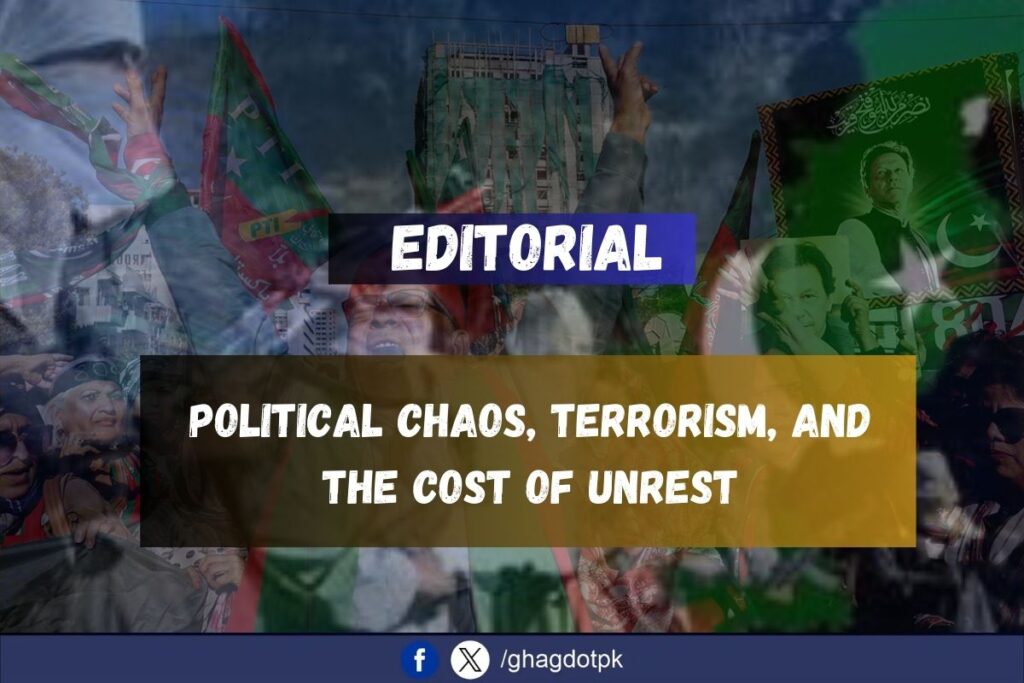Pakistan is once again caught in the throes of unrest and political upheaval, a deadly cocktail that fuels terrorism and destabilizes the nation. From the bloody sectarian clashes in Kurram to the simmering insurgency in Balochistan, and the relentless political adventures of the Pakistan Tehreek-e-Insaf (PTI), Pakistan faces threats not just from external enemies but from internal divisions and unchecked agendas.
In Kurram, sectarian violence has reached alarming levels, leaving dozens dead and hundreds displaced in recent months. The once-peaceful region is now synonymous with fear and bloodshed, with state institutions failing to mediate between warring factions. In Balochistan, the insurgency rages on, exacerbated by corruption, lack of governance, and political negligence. Over 3,500 health department posts remain vacant in the province, and Basic Health Units (BHUs) in 40% of the province are non-operational. Meanwhile, educational institutions and job opportunities remain scarce, creating fertile ground for extremism and discontent.
Amidst this chaos, PTI’s relentless protests and political adventurism have further exacerbated Pakistan’s challenges. By refusing to engage in dialogue and undermining state institutions, the party has contributed to a deepening political divide that distracts from urgent national priorities. PTI’s protest campaigns have not only damaged Pakistan’s economy—already reeling from floods and inflation—but have also emboldened anti-state elements.
The statistics paint a grim picture. Terrorist attacks have surged by 73% in the first half of 2024 compared to the previous year, according to the Pakistan Institute for Peace Studies. Khyber Pakhtunkhwa (KP) alone has seen over 250 targeted attacks in areas like Kurram, Bannu, and Waziristan. In Balochistan, bombings and ambushes have claimed hundreds of lives. Tragically, many of these attacks target security personnel who are already overstretched dealing with political unrest and natural disasters.
Political adventurism, particularly PTI’s refusal to prioritize dialogue over agitation, further divides a nation in need of unity. At a time when Pakistan requires strong, collective leadership, disruptive politics serves only to weaken the state’s ability to address terrorism, poverty, and governance challenges.
The path forward is clear: Pakistan must unite under a shared vision of patriotism and progress. Political parties must set aside differences to focus on governance and national security. Terrorism thrives on instability, and without political harmony, the state cannot effectively counter extremist threats. Similarly, the provinces of KP and Balochistan require urgent investments in education, healthcare, and infrastructure. Neglecting these regions is tantamount to undermining Pakistan’s long-term stability.
Our armed forces have made unparalleled sacrifices to defend Pakistan, but they cannot succeed alone. Political stability, strong institutions, and a patriotic citizenry are the backbone of national security. Leaders across the spectrum must act responsibly, prioritizing the country’s future over personal or party agendas.
Pakistan stands at a crossroads. It can either succumb to division and chaos or rise above petty politics to address its challenges head-on. The choice lies with its leaders, and the time to act is now.






